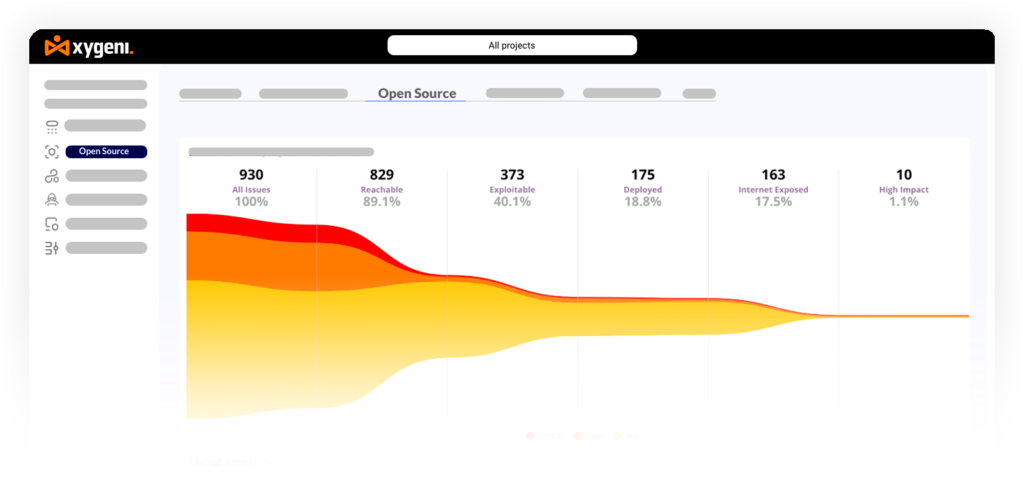What Is a Format String Bug, and Why Does It Still Matter
A format string bug occurs when user-controlled data is passed as the format string in functions like printf, fprintf, or syslog, without validation.
In simple terms, A format string bug happens when user input is used as a formatting template, allowing unintended reading or writing in memory. This is especially dangerous in languages like C/C++, where format specifiers like %s, %x, and %n can directly manipulate stack data.
Why does this matter in modern DevSecOps? Because these bugs are still found in active codebases, especially in:
- Open source components with legacy C code
- Native bindings in Python, Go, or Rust
- Auto-merged third-party code in production pipelines
The impact is real: memory leaks, stack corruption, and even remote code execution (RCE). And yet, many teams trust static scanners and miss these bugs unless they’re explicitly checking for them.
Straight to the Code: printf(user_input) and the Danger
Let’s look at a common mistake:
printf(user_input);
This one-liner is a direct path to trouble. If user_input contains something like %x %x % x% %x, it instructs printf to read values off the stack, exposing memory. Worse, if %n is included, the attacker can write arbitrary values to memory.
This pattern doesn’t just leak stack data; it can also corrupt memory and escalate into remote code execution (RCE). This is exactly what a format string vulnerability looks like in practice. These vulnerabilities don’t raise compiler errors or warnings unless specific flags or sanitizers are enabled. And in many cases, they’re buried in wrappers or utility functions, making them invisible to casual code reviews.
Memory Corruption 101: What’s Really at Stake
When a format string bug is exploited, attackers can:
- Dump memory addresses and stack values using %x or %s
- Overwrite stack variables or return addresses with %n
- Cause segmentation faults or logic errors via memory corruption
- Pivot toward full RCE, especially if protections like ASLR or stack canaries are misconfigured
Understanding the stack frame helps here. printf doesn’t know how many arguments to expect; it relies entirely on the format string. That’s why %x walks up the stack, revealing or manipulating data. The outcome ranges from minor leakage to complete control over the instruction pointer.
Where Format String Bugs Hide in Modern Codebases
These vulnerabilities are not exclusive to legacy C code. They lurk in modern environments:
- Python (ctypes), Rust (FFI), and Go (cgo) bindings that interface with native libraries often act as thin wrappers, passing parameters directly to vulnerable C functions.
- Third-party CLI tools and daemons are integrating older C code without sufficient review
- Logging wrappers like debug_log(user_input) that internally route to printf-style functions
- Auto-merged OSS contributions containing legacy patterns or minimal validation
A bug in the native C layer doesn’t stay there; it propagates upward. If a C function like log_event(char *msg) is unsafe, calling it from Python via ctypes, Rust via unsafe extern, or Go via cgo brings the vulnerability into those higher-level environments.
The problem? These integrations are common, and DevSecOps often assumes that bindings are safe abstractions. They’re not. A format string vulnerability in one layer of the stack can silently propagate across interfaces, especially when native modules are wrapped without strong type enforcement or input sanitization. If the underlying C function is vulnerable, the higher-level code inherits the format string vulnerability.
CI/CD Pipelines: How This Sneaks Past Your Security Checks
Modern pipelines are designed for speed, but that speed introduces blind spots:
- SAST tools rarely catch dynamic format string usage unless specifically configured to trace tainted data
- PR reviewers focus on logic or style, not underlying C function behavior
- CI merges pull in vulnerable packages that look harmless on the surface
- Dependency scanners often ignore native code or unsafe logging logic
Standard SAST tools often fail to detect format string bugs unless custom rules are implemented to catch non-literal format arguments. Without these tailored checks, dynamic format strings easily slip through undetected.
Integrating format string-specific rules into CI/CD is essential to identifying and stopping these bugs early. This means:
- Blocking code where untrusted inputs reach formatting functions
- Flagging dynamic format strings during static analysis
- Enforcing these policies as part of your CI merge process
Without this, your pipeline is blind to a class of vulnerabilities that can lead to memory corruption and RCE, long before the code hits production.
Spotting the Bug: Hands-On Detection with GDB and Static Tools
To find and confirm these bugs, use a combination of manual debugging and automated static analysis.
GDB is especially useful when you suspect format string misuse but need to confirm how it behaves at runtime:
- Break on printf or related functions to inspect the call stack and arguments.
- Look for anomalies, unexpected memory reads, crashes during formatting, or strange values on the stack.
- Abstract input like repeated %x or %s can help identify how deeply the format string walks the stack.
From Manual to Automated:
Once you’ve confirmed a pattern of misuse manually, the next step is turning that insight into an automated rule. For example:
- Use grep ‘printf(‘ src/ to find raw formatting calls.
- Combine this with scripting to flag any use of printf( where the first argument is not a literal string.
- Use AST-based tools to trace format string values, identifying non-literal paths dynamically.
- Translate frequent manual findings, like wrapper functions forwarding untrusted input, into CI rules that block these cases automatically.
CI Integration Tip: Configure your pipeline to fail builds if any format function receives dynamic input as its format string. These checks act as a firewall that enforces what you’ve learned from GDB and runtime debugging.
Hardening Your Code: Validating Input and Safer Patterns
Preventing a format string vulnerability starts with adopting safer coding habits and enforcing them at scale:
- Always use fixed format strings: printf(“%s”, user_input);, never pass raw input as the format.
- Prefer safer variants: snprintf, vsnprintf, and similar functions help control buffer sizes and enforce output structure.
- Validate all user inputs that might enter logging or formatting logic, even in wrapper functions.
Automated Mitigations You Should Enable:
- AddressSanitizer (ASan): Detects memory corruption in real-time, including buffer overflows and stack violations, often triggered by malformed format strings.
- UndefinedBehaviorSanitizer (UBSan): Flags undefined behavior such as passing mismatched or missing arguments to format functions.
- -D_FORTIFY_SOURCE=2: Adds lightweight checks to libc functions during compilation, helping catch format string misuse or buffer overruns with minimal performance overhead.
These tools should be enabled in both development and CI environments to catch issues before they ship. Combined with static analysis, they form a robust safety net, alerting you to misuse that might otherwise go unnoticed until runtime or after exploitation.
Tip: Make these sanitizers part of your build pipeline with fail-on-warning policies. Treat any format string violation like a failed test.
How Xygeni Stops Format String Bugs Before They Ship
Xygeni strengthens CI/CD by enforcing format string safety with real-time prevention, not just detection:
- Identifies dangerous patterns like printf(user_input) before the code reaches production
- Applies static taint analysis to trace untrusted inputs into formatting functions, even across multiple layers or wrapper calls
- Blocks insecure merges automatically in GitHub, GitLab, Bitbucket, and Jenkins
- Provides clear feedback with call traces, input origin, and precise remediation suggestions
Example in action: if a developer commits the line log_debug(user_input) and log_debug() internally wraps a vulnerable printf, Xygeni follows the call graph, recognizes the dynamic input path, and blocks the merge. The developer sees an immediate message in their merge request:
⚠️ Format string vulnerability detected: user_input flows into printf() at src/logger.c:42. Use a fixed format string and validate inputs.
This feedback is delivered directly in GitHub, GitLab, Jenkins, or Bitbucket as part of the MR/PR process. Developers can’t miss it, and they receive actionable guidance on how to fix the issue, not just a vague warning.
Integration is seamless:
- Configure policy rules per repo, branch, or project
- Enforce blocking conditions for unsafe format usage
- Automatically trace unsafe inputs across C/C++, Python, Go, Rust, and their native bindings
By embedding security into your workflow and providing developer-first feedback, Xygeni ensures format string bugs never make it to production, stopping them exactly where they emerge.
Final Word: Format String Bugs Aren’t Dead
Despite modern language tooling, format string bugs are still showing up. They pass through wrappers, third-party packages, and under-reviewed PRs. Their impact is real: memory corruption, data leakage, and potential RCE.
Audit your code. Harden your CI/CD. Implement detection rules and enforce them. This is not just legacy baggage, it’s an active threat hiding in plain sight. Use automated tools, static analysis, and runtime sanitizers to catch issues early. Don’t assume you’re safe just because the code compiles.









